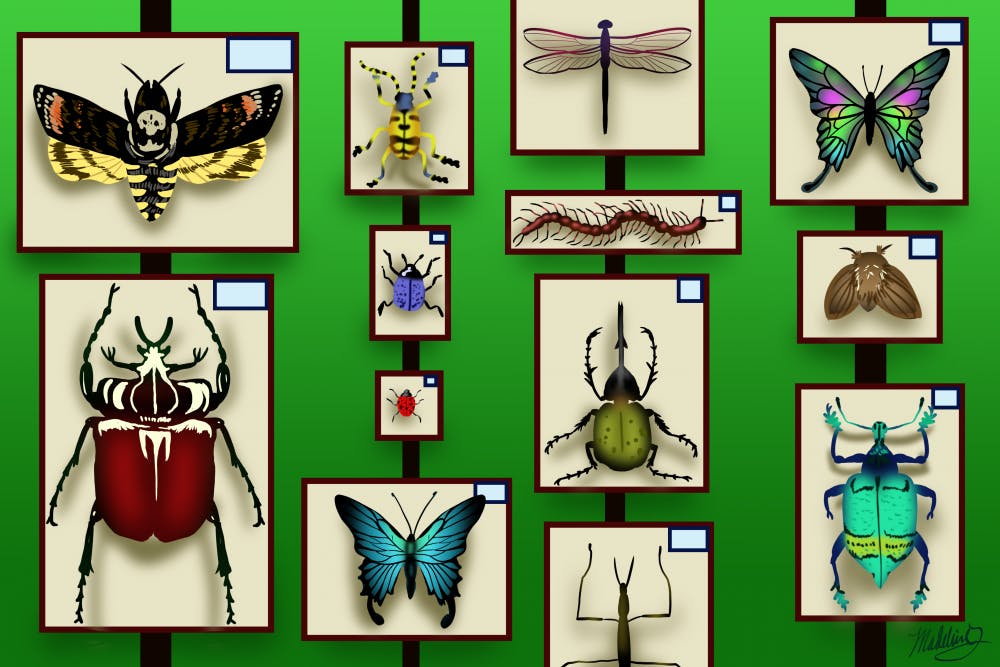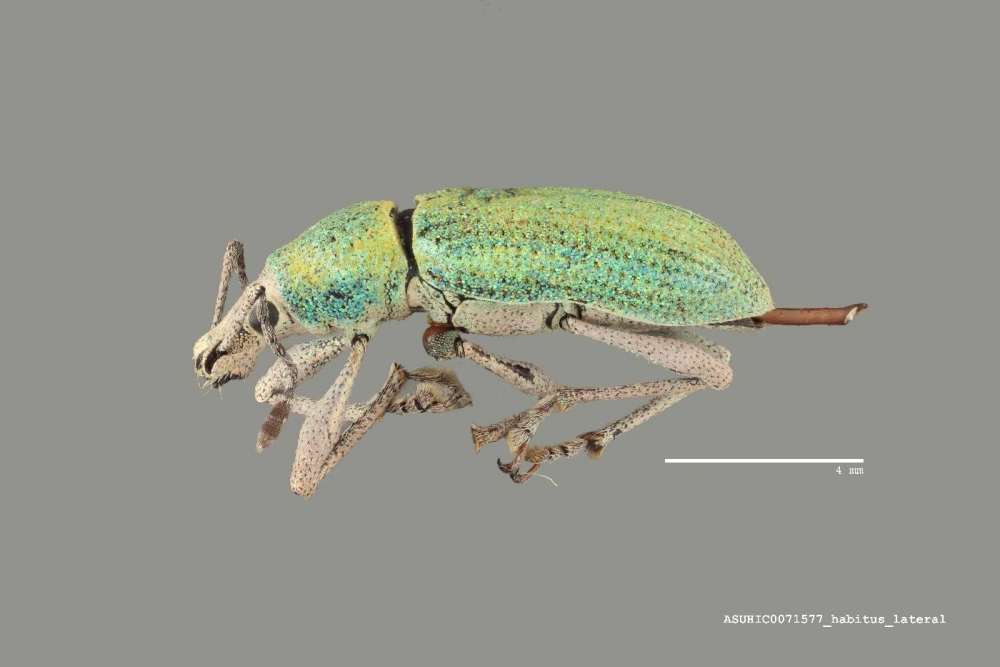ASU's Natural History Collections is gaining a few new members in its legion of preserved bugs and it’s creating a lot of buzz.
About 1.25 million bugs are being added, to be exact, thanks to a donation by Charlie and Lois O’Brien, whose insect assemblage is valued at over $10 million.
Gathered from every continent across the globe, and over 50 different countries, the two entomologists spent a lifetime perfecting their collection.
One bug in particular specific species of insects, in particular was the weevil.
A weevil is a type of small beetle with a snout that could be classified as a pest due to their ability to harm crops. The couple, now 80, have decided to give their weevils a new home at ASU.
One of the reasons that the couple was eager to make this donation to the University was the amount of studies done at the Natural History Collections' facilities in relation to weevils.
Nico Franz, a professor in the School of Life Sciences, a weevil expert and friend of the O'Briens, said the donation could greatly impact the studies done by the University.
Franz studies the evolutionary history of weevils, and is the curator of the Hasbrouck Insect Collection at ASU. Franz said that studies that have potential to stem from specimen in this donation could have a large impact on agricultural studies.
“Arizona State University is a land grant institution, and has an agricultural service mission,” Franz said. “The biology of these insects is such that they are plant-eating, what we learn about them can teach us to understand better how it is they interact with plants whether it’s from their role as pollinators or vectors of plant viruses.”
He said that it was ASU’s innovation and potential that attracted the couple with their donation.
“The two main factors behind their donation were a match to their specialization with weevils here at the institution, and another reason is just they have seen investments by ASU into their collections and how we really make efforts to implement the collections into our teaching curriculum,” Franz said.
The collection’s facility goes even further into their student outreach, with opportunities for undergraduate and graduate students to work directly out of their buildings with their own office and access to the collection for a more hands on experience.(CQ)
Sal Anzaldo, a Ph.D student at the School of Life Sciences, said he works directly with this new collection that includes a wide variety of weevils.
“The group of weevils that I work on virtually spans over the entire world, and I use them to study all the varying characteristics that diversify them, in my projects," Anzaldo said. "Currently, I’m working on some taxonomic revisions.”
ASU is looking to give students a hands on approach to studying all of the specimen available at collection facility.
Kathleen Pigg, the Natural History Collections curator for fossil plant collections, said she is optimistic about the recent donation and how it will engage students to learn more about natural history.
“I think it’s a very well respected collection people are very familiar with it and I think it’s really going to help people develop a positive association with the collection and overall with ASU,” Pigg said. “It’s my hope that it’ll get students and the public excited about it and to take a little extra interest in the research we have going on in our facility.”
Reach the reporter at Taylor.Rivera@asu.edu or follow @RiveraTaylor21 on Twitter.
Like The State Press on Facebook and follow @statepress on Twitter.





